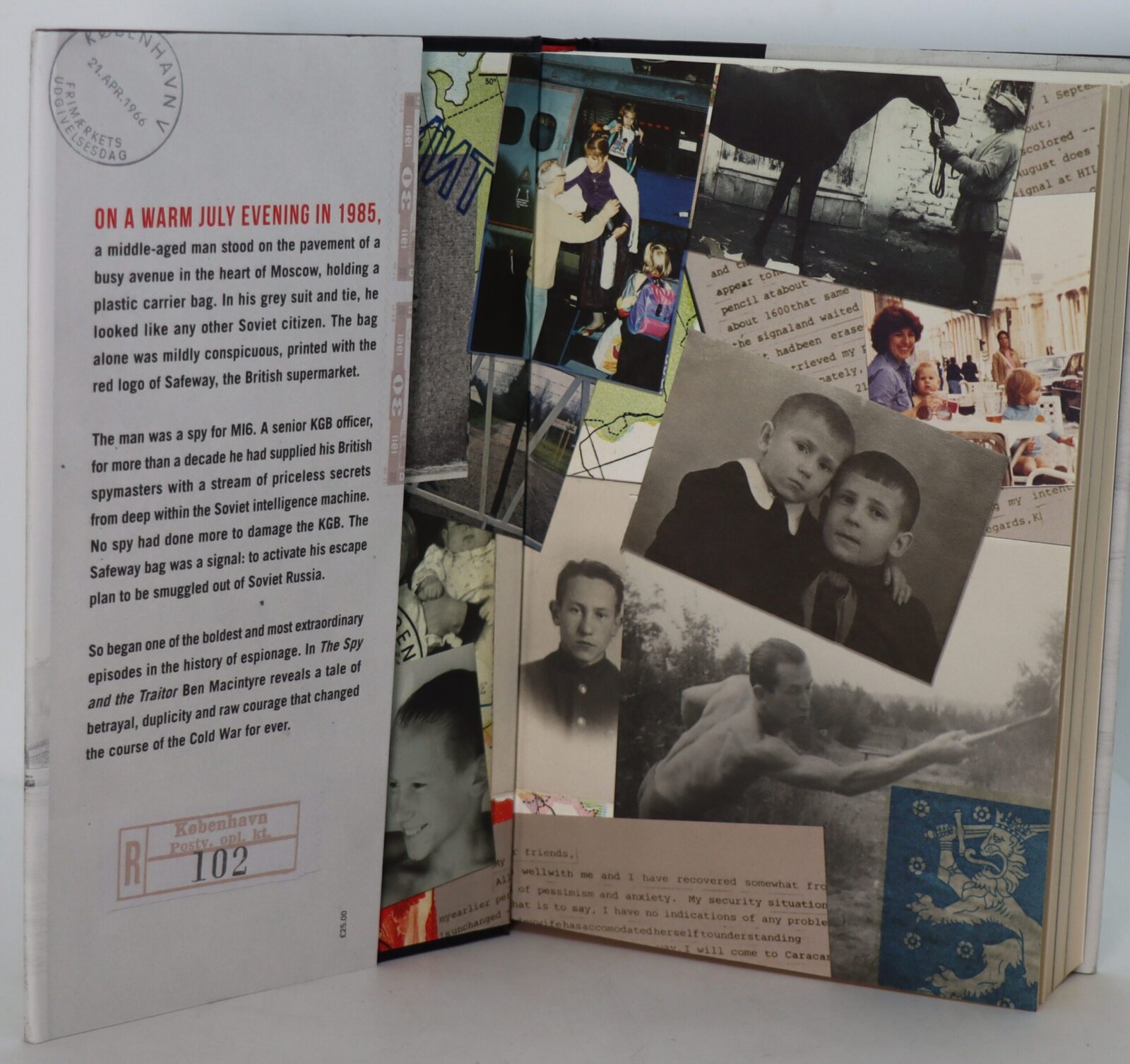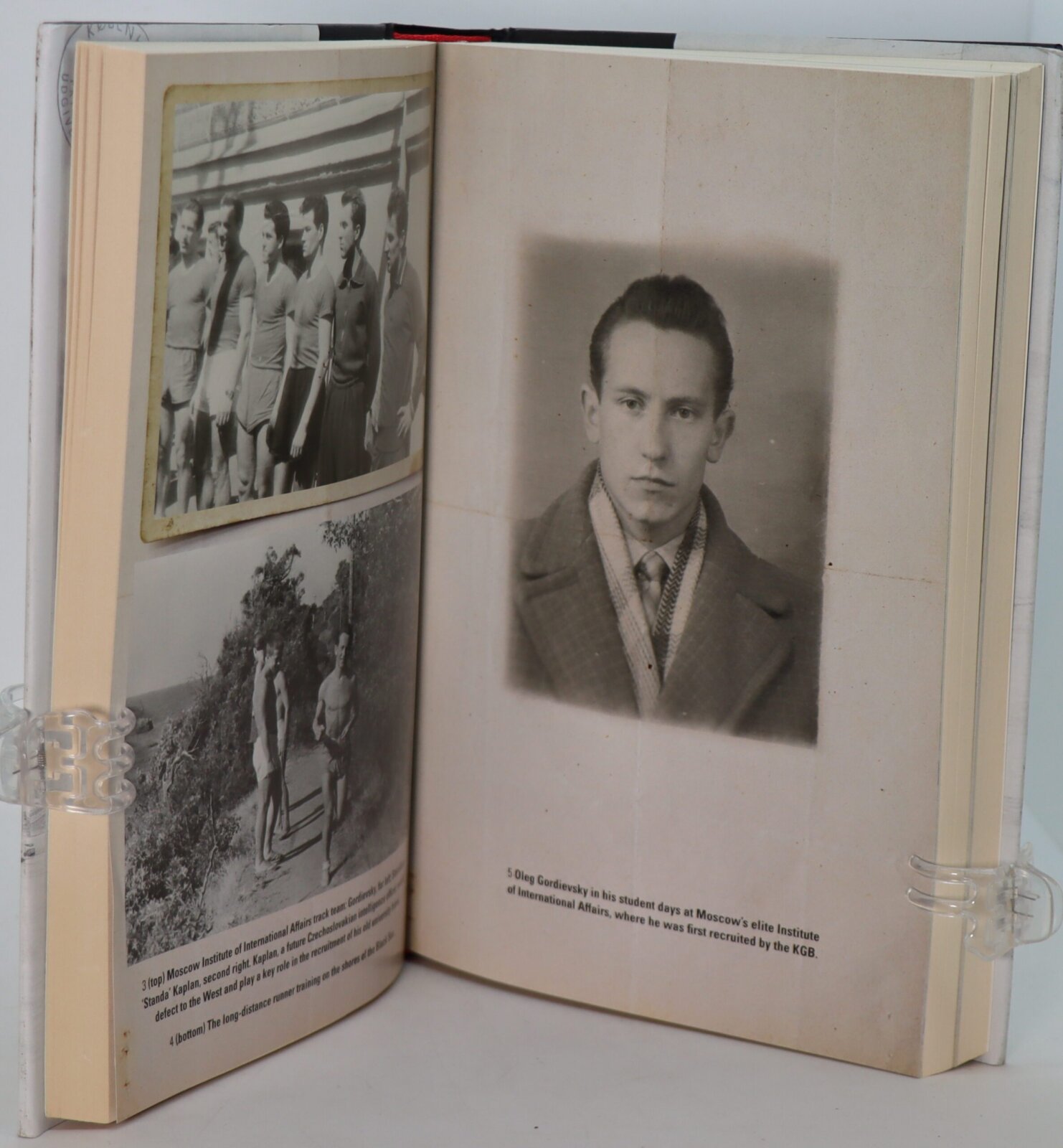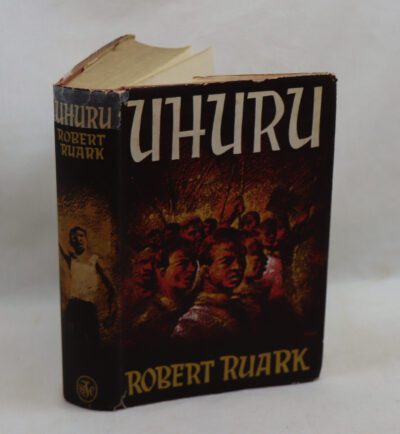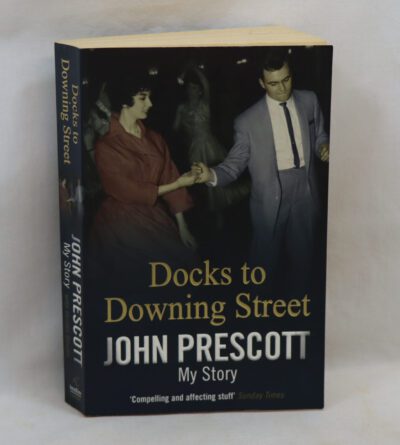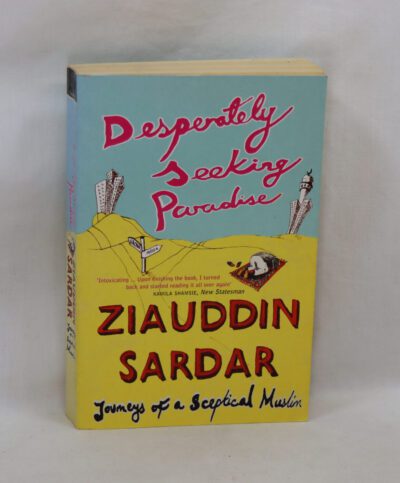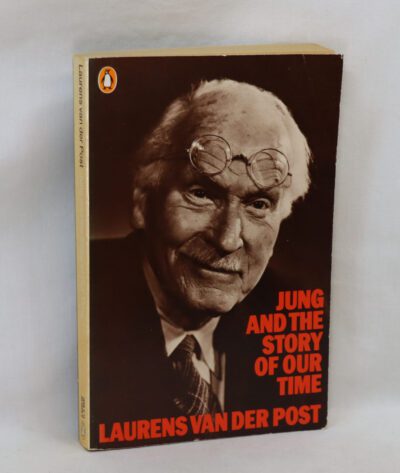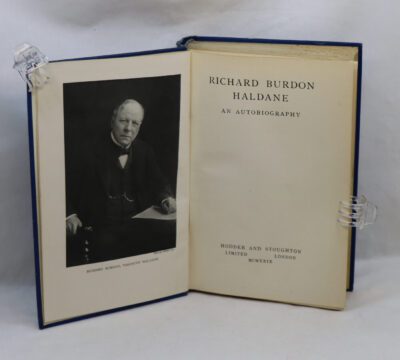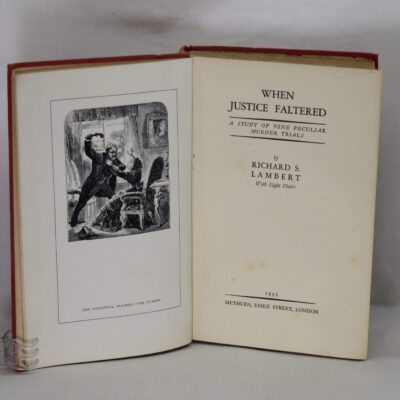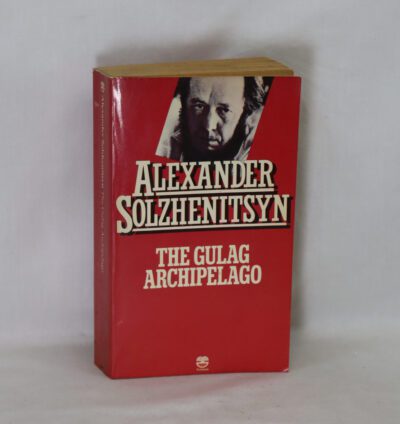The Spy and the Traitor.
By Ben Macintyre
ISBN: 9781101904206
Printed: 2018
Publisher: Viking. London
| Dimensions | 16 × 24 × 4 cm |
|---|---|
| Language |
Language: English
Size (cminches): 16 x 24 x 4
Condition: Fine (See explanation of ratings)
Item information
Description
In the original dustsheet. Black cloth binding with glossy black title on the spine.
F.B.A. provides an in-depth photographic presentation of this item to stimulate your feeling and touch. More traditional book descriptions are immediately available.
*Shortlisted for the 2018 Baillie Gifford Prize*
*Shortlisted for the Specsavers National Book Awards 2018*
*A top 10 Sunday Times bestseller*
‘THE BEST TRUE SPY STORY I HAVE EVER READ’ JOHN LE CARRÉ
A thrilling Cold War story about a KGB double agent, by one of Britain’s greatest historians
On a warm July evening in 1985, a middle-aged man stood on the pavement of a busy avenue in the heart of Moscow, holding a plastic carrier bag. In his grey suit and tie, he looked like any other Soviet citizen. The bag alone was mildly conspicuous, printed with the red logo of Safeway, the British supermarket.
The man was a spy for MI6. A senior KGB officer, for more than a decade he had supplied his British spymasters with a stream of priceless secrets from deep within the Soviet intelligence machine. No spy had done more to damage the KGB. The Safeway bag was a signal: to activate his escape plan to be smuggled out of Soviet Russia.
So began one of the boldest and most extraordinary episodes in the history of espionage. In The Spy and the Traitor Ben Macintyre reveals a tale of betrayal, duplicity and raw courage that changed the course of the Cold War forever.
‘Macintyre does true-life espionage better than anyone else. The Spy and the Traitor may well be his best book yet’ Evening Standard
‘A dazzling non-fiction thriller and an intimate portrait of high-stakes espionage’ Guardian
‘A real-life thriller, as tense as John le Carré’s novels, or even Ian Fleming’s’ Economist
Review: I came to this book via “A Spy Among Friends”, Ben McIntyre’s fine book on Kim Philby with extensive references to the Cambridge spy ring. Although there is no-one of the extraordinary, and charismatic nature of Guy Burgess here, the book is utterly compelling. Quite apart from its deadly serious matter, the book is an enthralling read. I cannot think of a spy novel to rival it.
Essentially it concerns the remarkable Oleg Gordievsky, but we also learn a great deal about the KGB and British and American espionage and counter espionage.
Gordievsky’s father was a dyed in the wool KGB agent, and as such Oleg grew up in a family that was “well-fed, privileged and secure”. He seemed to be ideally set to follow his father and his older brother, Vasily, into the party machine, and indeed the talented young Oleg joined the Komsomol, with his brother already established as a rising figure in the KGB. All seemed to be set fair for the future. Yet even in his early years he is sensitive to divisions and secrets within the family. His mother, Olga, keeps remote from her husband’s political world and beneath the man for whom the Party was God, Oleg detects in his father, Anton, a “small, terrified man”.
With the death of Stalin, Khruschev assumes power in the Soviet Union. At first there is much talk of the Khruschev Thaw, but the new leader is a tough man, who while purging the Party of many Stalinists and releasing political prisoners,
has no intention of loosening the hold on the Soviet bloc. During this time Oleg is beginning to cultivate his yearning for foreign travel and becomes a regular listener to the BBC’s World Service. He is beginning to see a world beyond the confines of the Soviet Union. Nevertheless, he idolises his elder brother and his prospects in the party machine are further enhanced by his acceptance at the KGB’s elite training school, specialising in the preparation of “illegals”, the secret, undercover agents as opposed to those who openly hold positions in consulates etc.
In the early 1960s we have the Molody/Lonsdale affair, the Portland Spy Ring and most importantly, perhaps, the defection of Kim Philby. Philby was the highest in rank of all the spies that emerged in these years. His defection was a major blow to the morale of British and American intelligence and the trust between the two countries in this area.
Success in the upper echelons of the KGB presupposed a stable marriage and Gordievsky makes what in effect is a marriage of convenience with Yelena, who is totally committed to the communist cause. While prospering in his KGB career, Oleg is deeply affected by his friendship with the cultivated Czech, Kaplan, by his experiences in East Germany and most of all his time in Denmark, where he delights in the freedom and opens himself to the wonders of classical music and western literature forbidden in Moscow. Vague alienation turns to loathing of the drab conformity of his homeland. Informal contacts are made with the Danish intelligence service PET and Oleg is now disillusioned with his life at home and nourished by western values. He is ripe for turning.
At the same time his career is forging ahead. He is promoted to the rank of Major in the KGB, even as he suffers withdrawal symptoms on returning to Moscow. Key events move things on: the defection of Kaplan, the death of his brother, the appearance of Bromhead, who is to initiate Oleg’s defection as the codename SUNBEAM is born, a secret kept from the CIA.
Mcintyre now picks up the intrigue that leads to the overcoming of suspicions within the intelligence services and the British government and eventually launches PIMLICO, the escape plan should it be necessary to get Gordievsky out of the USSR in a hurry. There are major obstacles ahead. Oleg’s re-marriage is one of them. The activities of an at first unpromising CIA agent, Aldrich Ames is a far more dangerous one. We are also approaching the 1982 nuclear crisis and Andropov’s assumption of supreme power – an old -fashioned, inward -looking ex-KGB officer.
It is not long before Ames will uncover a key KGB agent working for British intelligence, even if his exact identity remains unknown for some time. Ames himself is to rise to become the chief of the CIA’s Soviet counter-intelligence unit and himself to desert to the Soviet cause. Gordievsky is promoted to become Rezident in London, the highest-ranking officer in the KGB in the UK.
He is in a position now to pass almost all secret KGB documents to his new friends. Then comes the summons to Moscow. No pressure is placed on Gordievsky but in the end he elects to return. PIMLICO goes on to high alert.
Amazingly, despite their knowledge via Ames, the KGB do no more than question Oleg and his new wife before sending the former to an expensive health resort. PIMLICO is now triggered and the exciting finale to the book is under way. McIntyre, sustains the suspense via precise detail while relentlessly turning the screw till it reaches unbearable tension.
McIntyre deals fully with the aftermath, the meeting with Mrs Thatcher at Chequers, the conviction for treason and the death sentence passed on Gordievsky, the world tour that McIntyre describes as a “one man intelligence roadshow”, through to Gorbachev’s refusal to discuss the issue of Oleg’s family joining him in Britain. Not least is the loneliness that a man in hiding is unable to avoid.
McIntyre, both directly and indirectly gives us a profound insight into the life of an illegal and the lives of espionage agents in general. From early on we see that spies are motivated in many different ways: for ideology, money, sex, blackmail and other far more confused needs. Whereas Ames sends at least 25 people to their deaths for money, others, Gordievsky and Philby among them, were ideologically motivated. As McIntyre tells us at the end, Oleg Gordievsky “is one of the bravest men I have ever met and one of the loneliest.” We are reminded of Kim Philby, who attempted to kill himself. The two, have much in common. Though Philby may have had the sharper intellect and the icier nerve, Gordievsky comes across as the more human figure, a man tortured by his conscience and his personal feelings.
McIntyre is a first-rate writer, lucid and forever not just presenting events, but reaching beyond to the human realities that affect his subjects and all of us. This is a remarkable book. I cannot recommend it too highly.
Want to know more about this item?
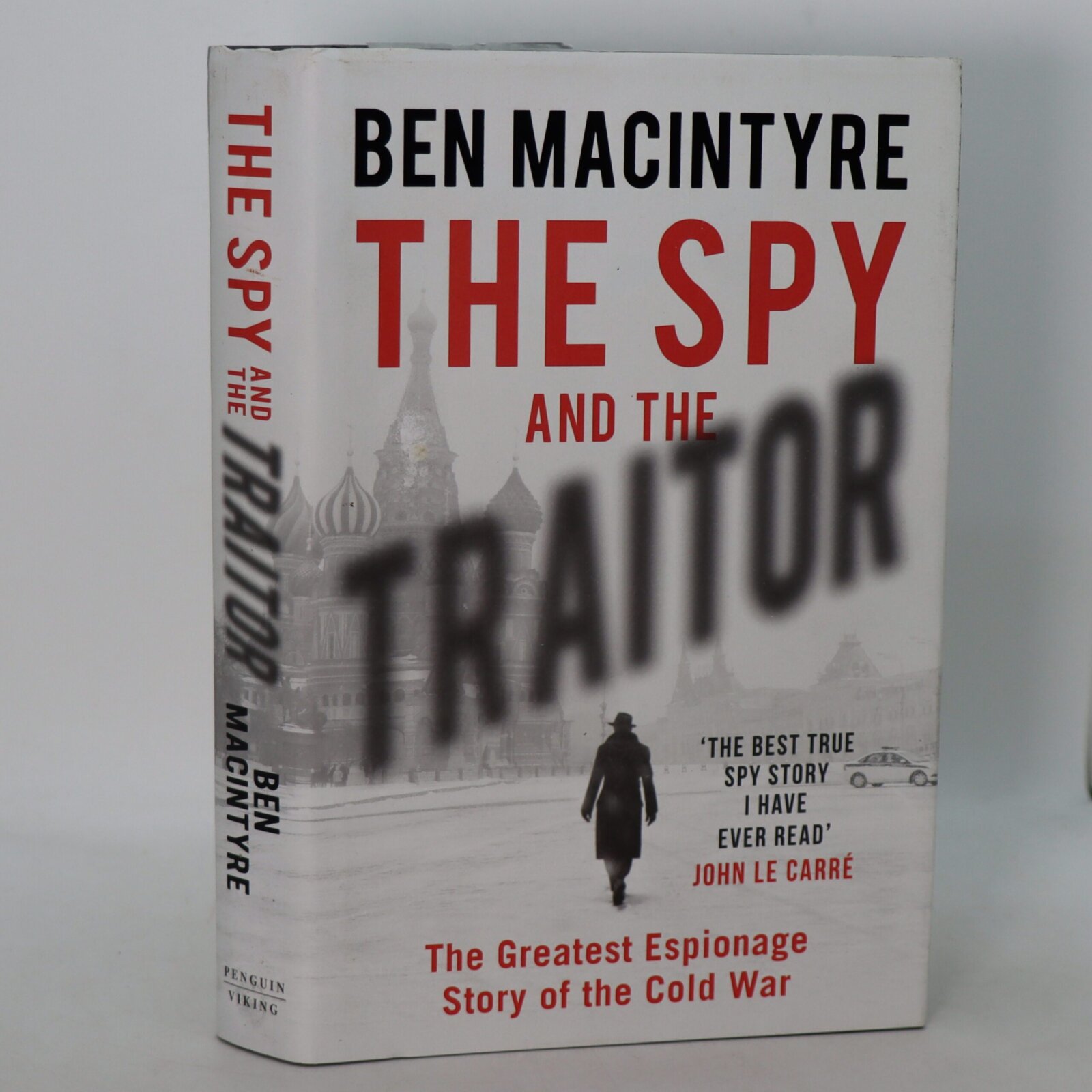
Related products
Share this Page with a friend

